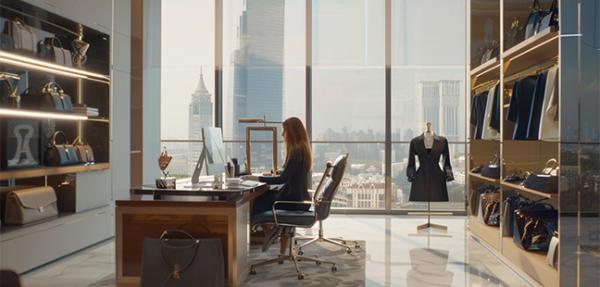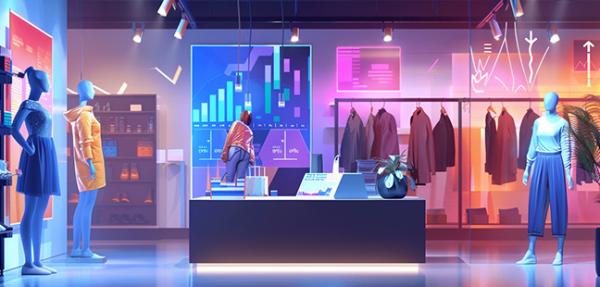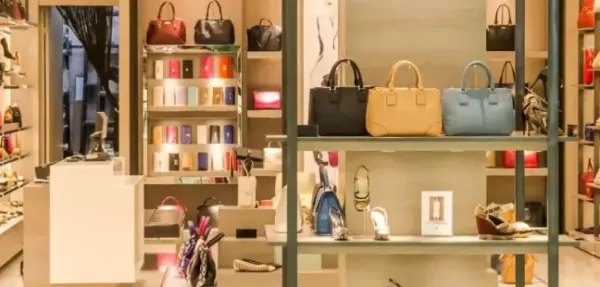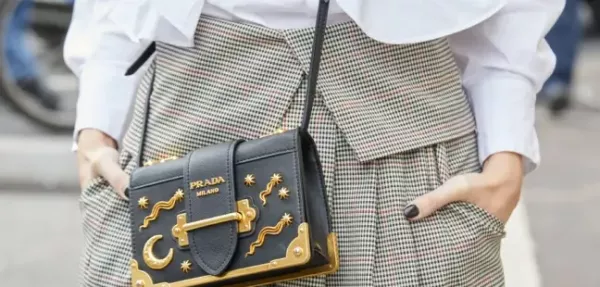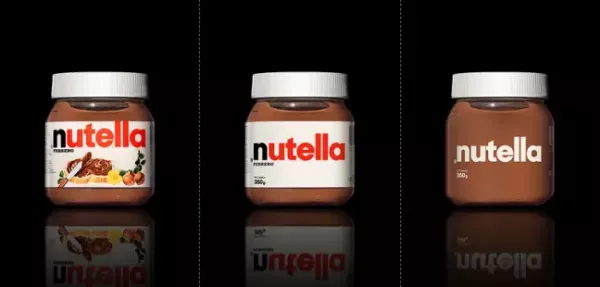Examples of Successful Sustainable Luxury Brands
- Pearl Academy Editorial Team
- Published 04-Jan-2025
.webp)
Table of Contents:
Sustainability in the luxury fashion industry is no longer just a trend; it’s a necessity. With growing awareness of environmental issues and ethical production, luxury brands are shifting from traditional practices to embracing sustainability. Consumers now demand eco-friendly and ethically sourced products, pushing high-end fashion houses to adopt greener practices. In fact, studies show that over 70% of consumers consider sustainability when making purchasing decisions, making it imperative for brands to align with these expectations.
In this blog, we’ll explore successful sustainable luxury brands, both internationally and in India, that are leading the charge in creating a more responsible fashion industry.
What is Sustainable Luxury Fashion?
Sustainable luxury fashion is the intersection of high-end fashion and eco-conscious practices. It involves producing luxury items focusing on ethical sourcing, environmentally friendly materials, fair labour practices, and reducing waste. These brands aim to minimize their environmental impact while maintaining the high-quality craftsmanship that defines luxury fashion.
Become future-ready with our Business Programs
Know MoreGlobal Success Stories in Sustainable Luxury Fashion
Many luxury fashion brands across the globe are redefining sustainability while maintaining their high standards of craftsmanship and innovation. By adopting eco-friendly materials, transparent production processes, and environmental activism, these brands are leading the charge toward a more sustainable future in the fashion industry.
1. Stella McCartney (UK)
Stella McCartney is a trailblazer in sustainable luxury fashion. The brand has built its name around cruelty-free and eco-friendly designs, using innovative materials like recycled fabrics, organic cotton, and vegan leather. Stella McCartney avoids fur, leather, and harmful chemicals in its collections, setting the gold standard for sustainability in luxury fashion.
2. Gucci (Italy)
Through its Equilibrium initiative, Gucci is making significant strides in sustainability. Gucci incorporates sustainable raw materials, eco-friendly dyes, and biodegradable packaging in its collections. The brand has committed to reducing its carbon footprint and supporting ethical labor practices. Gucci’s transparency in its supply chain and its dedication to green energy make it a global leader in sustainable luxury fashion.
3. Patagonia (USA)
Patagonia is renowned for its commitment to environmental activism. While more commonly associated with outdoor apparel, Patagonia has successfully integrated sustainable principles into the luxury segment by prioritizing slow fashion. The brand produces long-lasting, repairable clothing using recycled and organic materials. Patagonia also donates a percentage of its profits to environmental causes, reinforcing its commitment to sustainability.
4. Vivienne Westwood (UK)
Vivienne Westwood merges bold fashion with sustainability. The brand advocates for ethical sourcing, upcycling, and using organic fabrics. By integrating waste-reduction strategies, Vivienne Westwood proves that high fashion can be both luxurious and environmentally responsible.
Success Stories of Sustainable Luxury Fashion Brands in India
With sustainability gaining momentum in India, several homegrown brands are embracing eco-friendly practices while maintaining a strong luxury appeal. Here’s a list of Indian fashion brands making a significant impact in sustainable fashion:
1. Anita Dongre
Anita Dongre’s Grassroot label is a testament to her commitment to sustainability. The label promotes eco-friendly fashion by using organic fabrics and traditional Indian craftsmanship. Each piece is handmade, supporting local artisans and reducing the carbon footprint of production. This initiative helps preserve India’s textile heritage while fostering sustainable practices.
2. Ritu Kumar
Ritu Kumar has been a pioneer in promoting sustainable fashion in India. She integrates traditional handloom fabrics, organic dyes, and environmentally conscious production processes in her collections. Her efforts not only promote eco-friendly fashion but also ensure that Indian textile traditions continue to thrive.
3. Doodlage
Doodlage is an innovative Indian brand that focuses on upcycling waste fabric into luxury designs. By using discarded materials and promoting zero-waste production, Doodlage has carved out a unique space in the sustainable fashion industry. Their designs are a perfect blend of luxury and eco-consciousness, offering stylish and environmentally responsible options for modern consumers.
4. Amrapali Jewels
Amrapali Jewels is known for its commitment to sustainable practices in the luxury jewelry sector. They use responsibly sourced materials and follow eco-friendly methods in their crafting process, offering exquisite pieces that are ethically made while preserving India’s jewelry craftsmanship.
Why Are These Sustainable Fashion Brands Successful?
These sustainable luxury brands stand out because they:
- Use ethically sourced and eco-friendly materials.
- Maintain transparent and traceable supply chains.
- Implement eco-friendly production methods that minimize waste and pollution.
- Build strong brand stories around sustainability, resonating with conscious consumers.
- Engage and educate their audiences about the importance of sustainable fashion.
As the demand for sustainability in fashion grows, so does the need for skilled professionals in the industry. Careers in sustainable fashion are on the rise, offering opportunities in fashion design, textile innovation, ethical sourcing, and sustainability consulting. If you’re passionate about fashion and sustainability, consider pursuing a Fashion Design or Textile Design program to develop the expertise needed to make an impact in this evolving industry.
Read more about the Scope of BBA in Global Luxury Brand Management to understand how this program can shape your career in the luxury fashion industry.
The Future of Luxurious Sustainable Fashion Brands
The future of luxury fashion lies in sustainability. Emerging trends like circular fashion, zero-waste production, and digital innovations are paving the way for the next generation of luxury brands. Brands that embrace these changes will continue to lead the market, while consumers are increasingly choosing brands that align with their values.
As technology advances and consumer demand grows, we can expect even more luxury brands to adopt sustainable practices, driving the industry toward a greener future.
You too can contribute to the future of sustainable fashion by equipping yourself with the required skill set to set the trend. You can pursue a BBA in Global Luxury in Brand Management for expertise. With India's rich cultural heritage and shifting consumer trends, the demand for skilled luxury brand managers is rising. This program equips you with the expertise to thrive in the future of luxury brand management in India.
👉 If you have questions about this career path or the course itself, check out our detailed guide: Luxury Brand Management Courses Questions Answered.

Student Guidance Center: Our Counselors are Just a Click Away.
Conclusion: Supporting Sustainable Luxury
Global and Indian luxury brands are setting the standard for how fashion can be both luxurious and sustainable. By choosing eco-friendly materials, ethical production practices, and transparent supply chains, these brands are redefining what it means to be a luxury brand in today’s world. As consumers, supporting these brands can help push the fashion industry towards a more sustainable and ethical future. Apply Now to take the first step toward a career in sustainable luxury fashion.
Pearl Academy Editorial Team
Tags
- #Business
Pearl Admission Enquiry
Subscribe to Pearl Blogs
By clicking the "Subscribe" button, I agree and accept the privacy policy of Pearl Academy.











